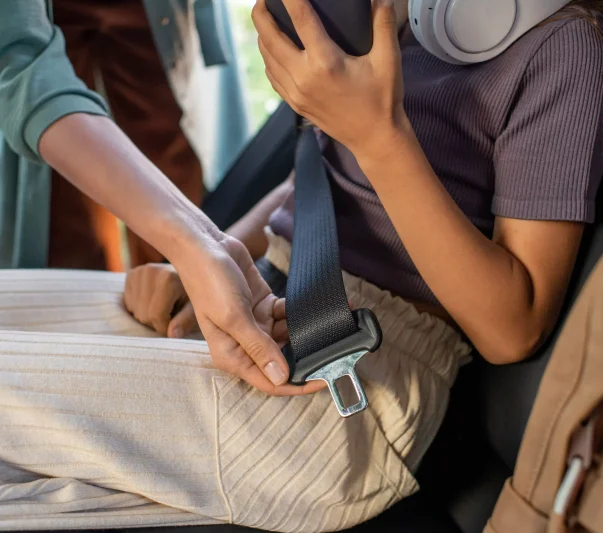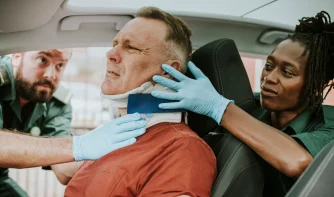According to the CDC, hundreds of back seat passengers who die in motor vehicle crashes across the U.S. each year while not wearing their seat belts would likely have survived their accidents had they been buckled in.
Even though seat belt use clearly saves lives, approximately 20 states, including Colorado, still do not have laws requiring all rear-seat passengers to wear seat belts. Of the states that do legally require seat belt use by rear-seat passengers, 11 states do not treat it as a primary offense that allows a police officer to pull a vehicle over solely for that offense, making enforcement difficult.
Seat Belt Laws in Colorado
In Colorado, the law requires drivers and front-seat passengers of motor vehicles to wear seat belts whenever the vehicle is being operated. Colorado law also requires children age 15 and younger to be properly secured by a seat belt or other age-appropriate restraint, regardless of which seat the child is sitting in.
The law exempts persons from the seat belt requirement if they have a physically or psychologically disabling condition that prevents them from using a seat belt, or if federal law does not mandate that their vehicle be equipped with seat belts.
Colorado’s seat belt law is considered a secondary offense. That means that a police officer may not pull over a vehicle simply because the officer observes a violation of the seat belt law. Instead, an officer may only enforce the law once pulling over a vehicle for another violation of the law.
However, the child restraint law is a primary offense, meaning that a vehicle can be pulled over if a police officer sees that a child subject to the law is not properly restrained.
Can I Be Fined for Not Wearing a Seat Belt in an Accident?
Yes. The driver of a vehicle in violation of the seat belt law or child restraint law can receive a minimum fine of $65, along with a $6 surcharge.
Recovering after a car crash can be challenging, especially when dealing with injuries and insurance claims. Our experienced car accident attorneys are here to take the burden off your shoulders and fight for your rights, so you can focus on healing.
Why Buckling Up in the Back Seat Is So Important
According to a report issued by the Governors Highway Safety Association, 803 rear-seat passengers were killed in car accidents across the U.S during 2018 while not wearing their seat belts. The report goes on to note that 400 of those 803 people killed would have survived their crash had they worn their seat belts.
Wearing seat belts, even in the back seat, is important because, in the event of a collision, a seat belt can prevent a rear seat passenger from being ejected from the vehicle or violently colliding with the vehicle interior.
A seat belt also manages the forces on the body during an accident by keeping the passenger from crashing forward while the vehicle’s crumple zones absorb the force of impact, and by distributing forces onto stronger parts of a person’s skeleton, such as their shoulder, rib cage, and pelvis.
What to Do If You Are in a Car Accident While Not Wearing a Seat Belt
If you have been involved in an accident where you were in the back seat while not wearing your seat belt, you need to consult with an experienced car accident attorney. Even if the driver of your vehicle was not at fault for the accident, the at-fault driver may try to argue that by not wearing a seat belt, you bear some share of fault for your injuries or the severity of your injuries. Don’t let them get away with it.
Contact Olson Personal Injury Lawyers today to schedule a consultation to speak to a Denver car accident lawyer about your rights and options if you’ve been injured in the back seat of a car involved in a motor vehicle accident. Call us at (970) 633-3673 for a free consultation!






